ABOUT NSS
National Service Scheme (NSS) was introduced in the year 1969 with the primary objective of developing the personality and character of the student through voluntary community service. Education through service is the purpose of the NSS the ideology orientation of the NSS is inspired by the ideas of MAHATMA GANDHI. Very appropriately the motto is “NOT ME, BUT YOU”. An NSS volunteer need to place the community first before self.
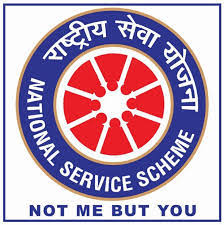
The symbol for the NSS has been based on the giant Rath Wheel of the world-famous Konark Sun Temple (The Black Pagoda) situated in Odisha, India. The wheel portrays the cycle of creation, preservation and release. It signifies the movement in life across time and space, the symbol thus stands for continuity as well as change and implies the continuous striving of NSS for social change. The eight bars in the wheel represents 24 hours of a day. The red colour indicates that the volunteer is full of young blood that is lively, active, energetic and full of high spirit. The navy blue colour indicates the cosmos of which the NSS is tiny part, ready to contribute its share for the welfare of the mankind. It stands for continuity as well as change and implies the continuous striving of NSS.
OUR MOTTO
The Motto of NSS is ‘NOT ME, BUT YOU,’ reflects the essence of democratic living and upholds the need for self-less service. It’s a journey from self-centeredness to other-centeredness. NSS helps the student’s development & appreciation to other person's point of view and also show consideration towards other living beings. The philosophy of the NSS is a good doctrine in this motto, which underlines on the belief that the welfare of an individual is ultimately dependent on the welfare of the society as a whole and therefore, the NSS volunteers shall strive for the well-being of the society.
NSS – MTIET
MTIET National service scheme aims at developing students through activities related to social service. Helping the helpless to help themselves is social service. The students are trained to extend support to the people in rural areas through special camps organized in remote villages.
There are special camps that involve adopting villages & implementing changes that will help the village & the people progress in terms of health care & technology. Students conduct awareness programs, medical camps & other activities relevant to the needs of the people. Education support for children, planting trees, conducting workshops, basic computer training, entrepreneurship training, awareness & training programs on natural resources & there usage, anti-liquor & anti-tobacco, campaigns are some examples of activities undertaken by NSS students of MTIET.
Additionally the school children in the villages are also exposed to engineering through demos of latest science experiments & projects.
Other regular activities conducted are:
- 1. Awareness programs – local & global disaster management, cancer & stem cell donation, environment protection, natural food habits & healthy living, mental health, road safety, women’s health.
- 2. Blood donation camps twice a year
- 3. Field work in college & adopted villages
- 4. Rallies – women’s day, youth awareness
- 5. Leader ship programs, personality development programs
- 6. Visits to orphanages
The conceptualization of Unnat Bharat Abhiyan started with the initiative of a group of dedicated faculty members of Indian Institute of Technology (IIT) Delhi working for long in the area of rural development and appropriate technology. The concept was nurtured through wide consultation with the representatives of a number of technical institutions, Rural Technology Action Group (RuTAG) coordinators, voluntary organizations and government agencies, actively involved in rural development work, during a National workshop held at IIT Delhi in September, 2014. The workshop was sponsored by Council for Advancement of People’s Action and Rural Technology (CAPART), Ministry of Rural Development, Govt. of India. The program was formally launched by the Ministry of Education (MoE) (formerly Ministry Human Resource Development (MHRD)) in presence of The President of India on 11th November, 2014.
Organizational Structure Of NSS In MTIET
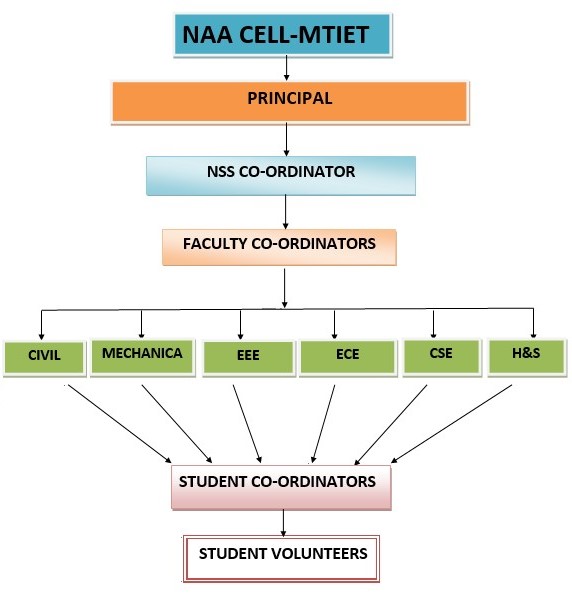
NSS – COUNCIL
| S.No | Name of the Member | Designation |
| 1 | Dr. M. Lakshmikantha Reddy | Principal |
| S.No | Name of the Member | Designation |
| 1 | N V Kishore Kumar | Assistant Professor In EEE |
| S.No | Name of the Member | Designation |
| 1 | D.V.Kiran | Assistant Professor In EEE |
| 2 | D. Dhana Sekhar | Assistant Professor In ECE |
| 3 | M. Manoj Kumar | Assistant Professor In CSE |
| 4 | J. Venkataramana | Assistant Professor In H&S |
| 5 | Praveen | Assistant Professor In ME |
ACTIVITIES
2023-2024
2022-2023
2021-2022
2020-2021
2019-2020
2018-2019
2017-2018
2016-2017
ABOUT UBA
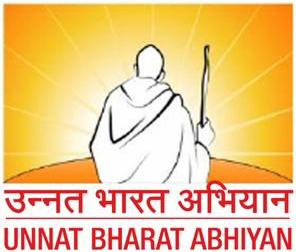
The conceptualization of Unnat Bharat Abhiyan started with the initiative of a group of dedicated faculty members of Indian Institute of Technology (IIT) Delhi working for long in the area of rural development and appropriate technology. The concept was nurtured through wide consultation with the representatives of a number of technical institutions, Rural Technology Action Group (RuTAG) coordinators, voluntary organizations and government agencies, actively involved in rural development work, during a National workshop held at IIT Delhi in September, 2014. The workshop was sponsored by Council for Advancement of People’s Action and Rural Technology (CAPART), Ministry of Rural Development, Govt. of India. The program was formally launched by the Ministry of Education (MoE) (formerly Ministry Human Resource Development (MHRD)) in presence of The President of India on 11th November, 2014.
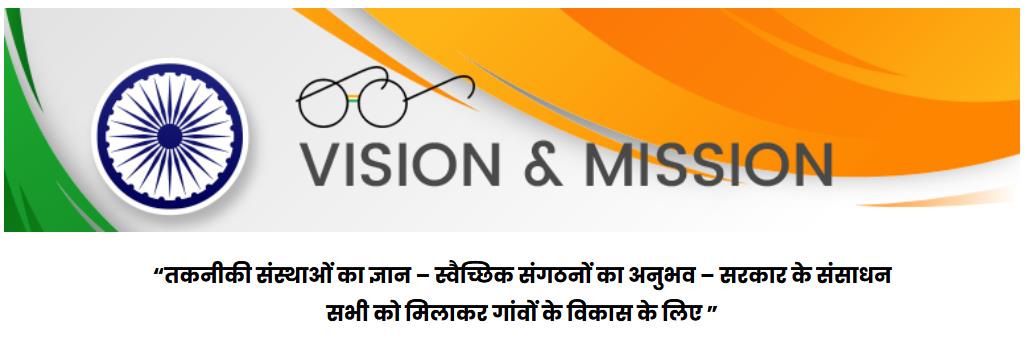
VISION
Unnat Bharat Abhiyan is inspired by the vision of transformational change in rural development processes by leveraging knowledge institutions to help build the architecture of an Inclusive India.
MISSION
The Mission of Unnat Bharat Abhiyan is to enable higher educational institutions to work with the people of rural India in identifying development challenges and evolving appropriate solutions for accelerating sustainable growth. It also aims to create a virtuous cycle between society and an inclusive academic system by providing knowledge and practices for emerging professions and to upgrade the capabilities of both the public and the private sectors in responding to the development needs of rural India.
Goals
- 1. To build an understanding of the development agenda within institutes of Higher Education and an institutional capacity and training relevant to national needs, especially those of rural India.
- 2. To re-emphasize the need for field work, stake-holder interactions and design for societal objectives as the basis of higher education.
- 3. To stress on rigorous reporting and useful outputs as central to developing new professions.
- 4. To provide rural India and regional agencies with access to the professional resources of the institutes of higher education, especially those that have acquired academic excellence in the field of science, engineering and technology, and management.
- 5. To improve development outcomes as a consequence of this research. To develop new professions and new processes to sustain and absorb the outcomes of research.
- 6. To foster a new dialogue within the larger community on science, society and the environment and to develop a sense of dignity and collective destiny.
Organizational Structure Of UBA In MTIET
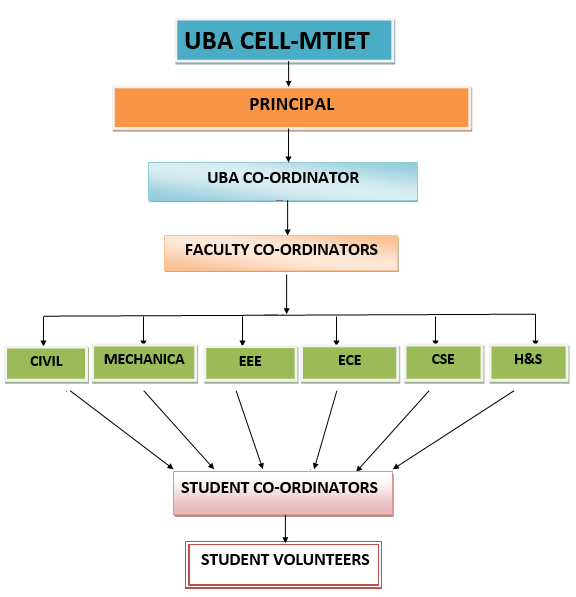
UBA – COUNCIL
| S.No | Name of the Member | Designation |
| 1 | Dr. M. Lakshmikantha Reddy | Principal |
| S.No | Name of the Member | Designation |
| 1 | N V Kishore Kumar | Assistant Professor In EEE |
| S.No | Name of the Member | Designation |
| 1 | D.V.Kiran | Assistant Professor In EEE |
| 2 | D. Dhana Sekhar | Assistant Professor In ECE |
| 3 | M. Manoj Kumar | Assistant Professor In CSE |
ACTIVITIES
2020-2021
2019-2020
Rainbow Club
About Rainbow Club
Data will be updated soon.

